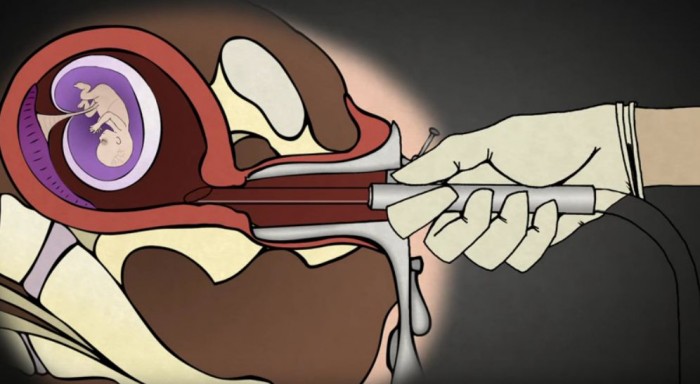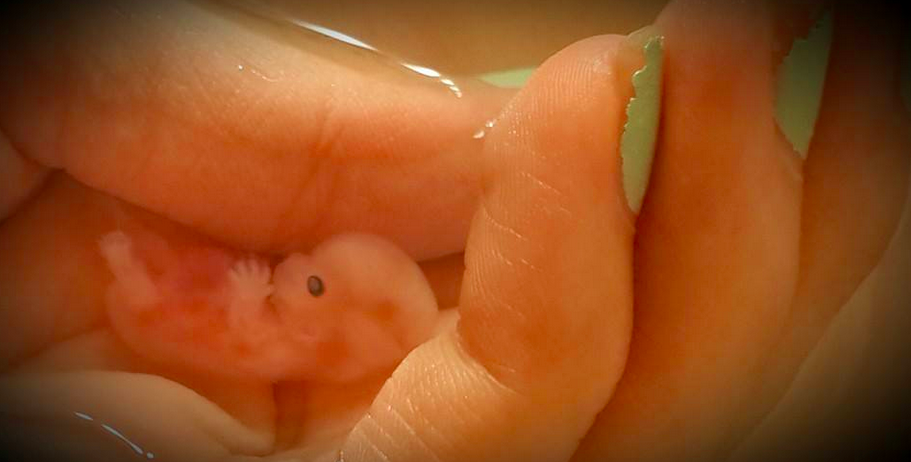Over the past several decades, medical advances have hit the abortion industry hard. Ultrasounds allowed mothers to see their preborn babies firsthand; increasing knowledge in the field of embryology has given people newfound understanding of the humanity of the preborn.
Learning about fetal pain struck a huge blow to support for violent second-trimester, D&E abortions (which can be learned about in the video below, with former abortionist Dr. Anthony Levatino).
The more science discovers about preborn children, the less willing people are to support abortion. And doctors and scientists still have so much more to learn.
A breaking new study has found that preborn babies in the first trimester have “adult-like” patterns of nerves. Researchers “combined whole-mount immunostaining, 3DISCO clearing, and light-sheet imaging to start building a 3D cellular map” and found that “the adult-like pattern of skin innervation is established before the end of the first trimester, showing important intra- and inter-individual variations in nerve branches.” They also found evidence for “a differential vascularization of the male and female genital tracts concomitant with sex determination.” The full study can be seen here.
For now, it’s almost conclusively provable that preborn babies can feel pain at 20 weeks gestation, although they respond to touch as early as eight weeks. There is also increasing evidence that preborn babies can feel pain much earlier than 20 weeks — possibly as early as five weeks. Some evidence exists to show that fetal pain may be even worse in the first trimester, “due to the uneven maturation of fetal neurophysiology.”

Is science discovering that this baby can feel pain that may be excruciating? (Diagram of a first trimester surgical abortion: aspiration (suction) D&C, from www.AbortionProcedures.com)
While this new research on nerve development cannot yet fully determine whether preborn babies can feel pain as early as the first trimester, it’s yet another important piece of evidence proving that, even in the first trimester, these are living human beings who have the right to life. And the likelihood that they do experience pain much earlier than many people believe is increasing — according to science.
From the moment of conception, a preborn baby is known to be a separate living being from her mother, with her own unique DNA strand. His heart begins beating as early as 16 days after conception, and his brain waves can be measured by six-and-a-half weeks. Her organs begin developing within just three weeks of conception, with all her organs in place by eight weeks. All she needs is time and nutrition to finish developing. Preborn babies can play in the womb at just eight weeks, moving their jaws and pointing their toes; just one week later, at nine weeks, the baby can yawn and suck his thumb. By 10 weeks, preborn babies have their own unique fingerprints.
Now, we can add a complex, well-developed nervous system to our scientific knowledge of preborn babies, further proving that they are living human beings who deserve to be protected.







